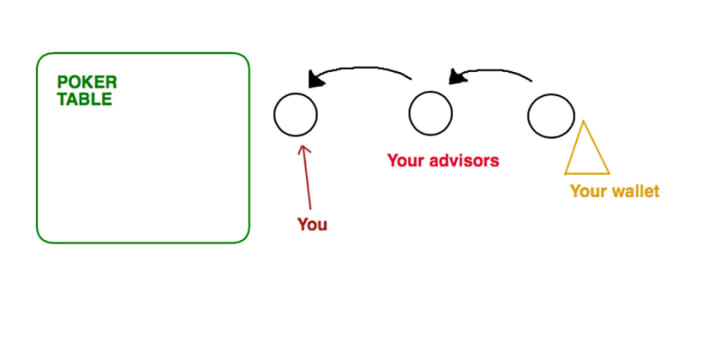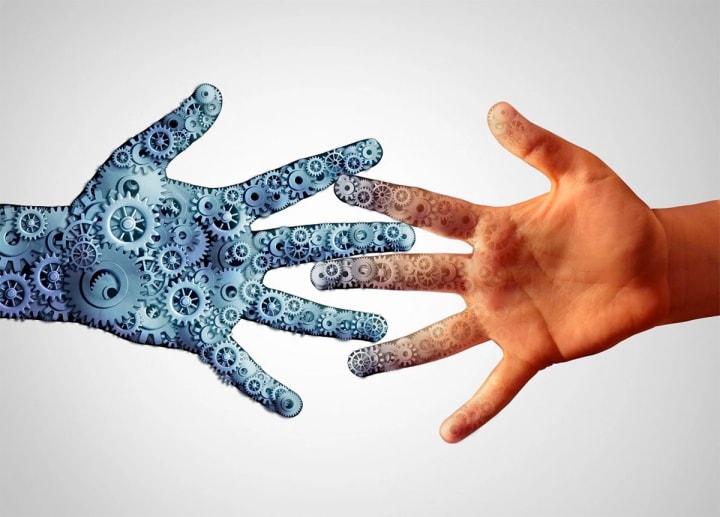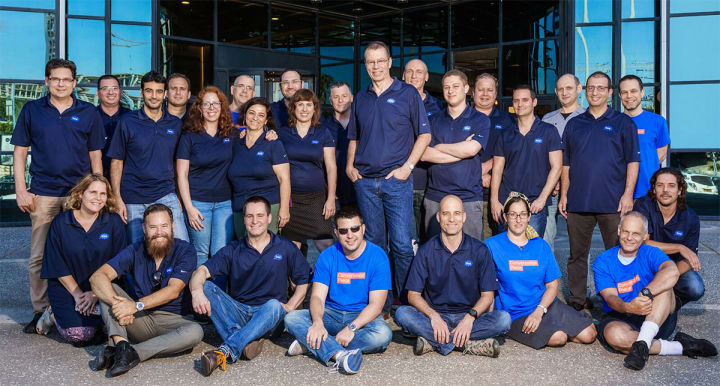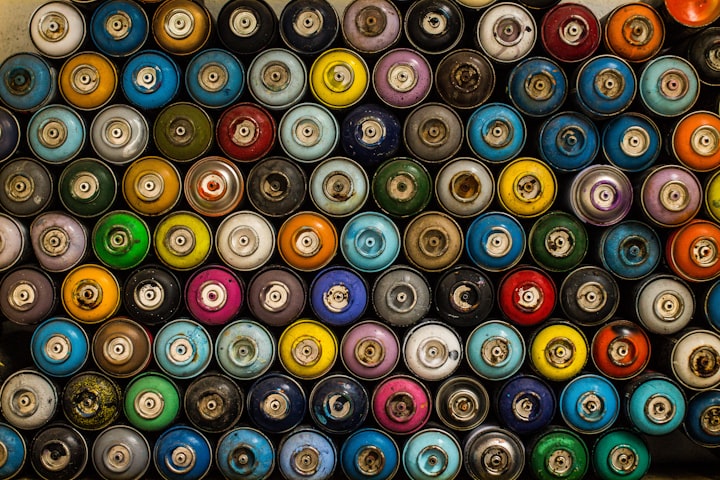Interview with Lotem Peled, Lead Data Scientist at Gong.io
Israeli data scientist Lotem Peled deep dives into the ever-expansive world of AI and her role at Gong, which uses conversation intelligence technology to help sales teams close deals.

Lotem Peled, the Lead Data Scientist at Gong.io, is setting new standards in the hi-tech space. A maven in an industry that has long been dominated by men, Lotem has proven that the most valuable metric for filling a position is merit.
She has a master's degree from Technion— the Israel Institute of Technology. Currently, Lotem is working from the company's Herzliya, Israel location. Close-by is Tel Aviv, an area that has seen extreme maturation in the hi-tech sector. In more ways than one, the Israeli tech scene is second only to Silicon Valley.
Gong.io is an AI-centric technology start-up founded by entrepreneurs Amit Bendov and Elon Reshef back in 2015. Gong uses artificial intelligence and machine learning to drastically change the way sales calls are conducted; simply put, Gong's technology is a game changer for salespeople. The goal: to improve performance to win more deals. How does Gong's AI achieve this? By identifying patterns that lead to the most positive outcomes, thereby creating the most effective algorithm for business.
In her interview with 01, Peled dives deeper into the algorithm, the world of artificial intelligence and what it takes to be a data scientist; her's is a job description that was recently dubbed the "Best Job in America" by Glassdoor. If her technological insights weren't gratifying enough, Peled even shares her perspective on the age-old dilemma of an artificial intelligence robot take-over.

01: What was your first encounter with artificial intelligence and neural models? How did you come to catapult that idea into a career?
Lotem Peled: During the third year of my bachelor’s degree, I took a course in Data Mining. In the final project, my group and I implemented a system predicting Facebook users' behavior— the users were represented by their features and friends (a list of numbers and words) and we had to build statistical models to understand which features tell us the most about this user, which users are more likely to become friends, more likely to ‘like’ and ‘follow’ certain pages, etc. This was the first time I saw strong insights extracted from plain numbers, and I was amazed. I later encountered neural nets in another course— Natural Language Processing— for the task of sentiment analysis. The strength of this statistical tool and its endless uses sparked my imagination, and I decided to learn more and go for this career direction.
Explain to me like I’m five: neural networks.
A 'Neural Network' is a statistical model that receives an input, processes it again and again (each time “learning” something else about the input), finally presenting an output based on what it's "learned.”
I’ll try a very naive example for a three-layered network, but instead of layers we’ll have three people (pictured below). Imagine that you’re playing poker, but you don’t make the decisions alone— behind you in a row are two advisors, each has its own specialty (one learned poker in London, the other is a stockbroker, etc.). Both advisors can also see your cards.
The last advisor holds your wallet and–based on how much money you have, your cards and his own special knowledge–he tells the advisor in front of him what you should do. The advisor behind you tells you what he thinks you should do based on his knowledge, your cards, and on what the other advisor says. Then, based on the cards, their advice and your knowledge, you play.
When you win (or lose), you tell both of your advisors, so that they can make better decisions next time (they learn from their mistakes). If you play long enough, you and your advisors would probably learn how to make the right decisions and optimize your winnings.
This (very roughly) can represent a neural network, where the input is the state of your wallet and your cards, the advisors are the layers (each has a special view of the situation) and your decision is the output.

What exactly does Gong do?
Gong helps sales teams succeed by giving sales leaders instant clarity on what's good, bad and ugly about each sales call. This helps sales reps coach themselves and each other, systematically improving their pitch and winning more deals. Gong achieves this by automatically recording, transcribing, and analyzing sales calls using AI conversation analysis.
How do salespeople benefit from using Gong’s AI?
In so many ways. They can go back to their call and review it, taking notes about what they can do better. They can listen to calls of other team members, learning from their colleagues' experiences. Communication between the account executives and the sales leaders is easier and more convenient with the notes and share possibilities. They can define trigger words that are important to them so that they won’t miss important calls with these words in them. They can enjoy our coaching insights and see, for example, patterns and behaviors that increase (or reduce) the chances to close a deal.

Aside from technical qualifications, what are the most important characteristics you look for when interviewing candidates to join your team?
It’s important to be creative and thorough. It’s also important to have the drive to experiment with many different models and algorithms, and to not be afraid of failures and of starting again from scratch!
What is your greatest fear when it comes to AI’s ever-increasing presence in our lives?
I recently read a paper about how the greatest danger of AI is bias in data. Nowadays, AI is used to make legal, financial and medical decisions— who should get a job interview, credit or granted parole. These algorithms are often trained on imbalanced data, and end up with a skewed point of view on certain populations and minorities. I find this scary and problematic.
If you could give a single (tangible) gift to every person in the world, what would it be?
I think it would be a laptop with an internet connection. Connecting people around the world would help people express their needs and find counterparts that can help them. It can open people up to endless amounts of knowledge and education. It can help people find their passion and ways to be creative.

What is your perception of AI and robot movies like Ex Machina and Blade Runner—does your data scientist cap ever come off, and do you have any misgivings as to the portrayal of AI in pop culture?
A lot of the technical aspects portrayed in these movies have already been achieved— robots can (largely) see things and talk to us, as well as understand and analyze what they see and hear. However, the one point in which pop culture is a bit imaginative and unrealistic, in my opinion, is consciousness, or awareness. For example, robots such as those in Westworld, that gain awareness of the fact that they are machines, are something that I think we’re still far away from. I hope.
Name three tech startups that we haven’t heard about yet, but should?
The first would be Taranis, an Ag-Tech startup which uses deep learning on datasets such as sub-mm aerial imagery, field sensors, satellite imagery and weather forecasts to predict and prevent crop disease and pest losses. Their algorithm can alert the farmer about a possible infestation in real time, which may save the farmer millions of dollars. The second is Aidoc, a startup which uses deep learning to analyze imaging and clinical data (for example, X-ray images). They report high accuracy anomaly detection in these X rays, which helps radiologists work faster. Finally, there’s Syte.ai, which (surprise) uses deep learning for image analysis to improve online shopping and basically convert images to revenue— when you go over photos analyzed by Syte.ai you can get recommendations on similar items to purchase, for any item in the photo.

Think fast! If you could invite three scientists–living or dead–to a dinner party, who would they be?
Marie Curie, because she was a uniquely tough, brave, inspiring woman. Stephen Hawking, because I remember reading "A Brief History of Time" when I was in high school and having my mind blown. Richard Dawkins, because I simultaneously agree and disagree with his opinions over so many subjects, and because I think a dinner party just can’t be boring with a guest like him.
For more on Lotem Peled, follow her on LinkedIn
Learn more about Gong at https://www.gong.io/ and follow the company on Facebook and Twitter.
About the Creator
Eric Green
Productive achievement is mankind's most noble activity.






Comments
There are no comments for this story
Be the first to respond and start the conversation.